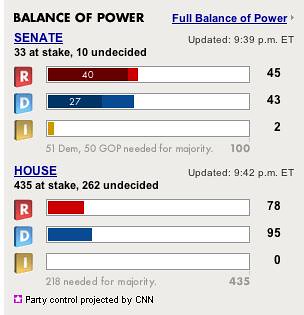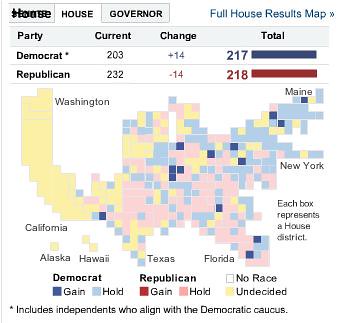Economy: Auto Industry USA: Ford's buyouts, Fords losses; GM's stock rise, GM's electrohybrid cars--lungAdvocates count mounting cost
.
Was it a week back that US Prez Bush met with the shaky heads of the Big 3 auto companies in the USA), all of which are nevertheless mega-corporates operating in many countries around the globe.
The USA historic 'Big Three' auto companies and the entire auto manufacturing industry in North America are the vortex of a number of huge economic forces that are presently in crisis. One is the overpayment (so to speak) of wages and benefits to Big3Auto employees, pressured by the United Auto Workers (UAW) and in Canada by the Canadian Auto Workers (CAW) over several decades--to the extent that Ford could no longer afford the futures of its longterm indebtedness to pension funds of present and future retirees from its UAW/CAW workforce. The second is global competition from foreign auto firms, some now manufacturing their brands of cars in North America or importing to the continent (the latter reduces jobs in North America). Soon, China will come online as such a competitor on the North American continent, while already it is supplying elsewhere both its own new and some older markets around the world that were once dominated by USA-Big3 auto sales.
Those autos made by automakers based outside the continent and already manufacturing plus retailing here in the USA and Canada (I don't known what the situation is in Mexico which is economically part of North America under the NAFTA treaty), are the products of companies I shall call "the incoming newbies" (tho some have been around these parts for years, decades even). They maintain the same damned trend we get from the Big3, producing pollution machines (of which only the worst are SUVs, while all pollutant-fuelled autos, trucks, buses, jeeps, planes, boats, snowmobiles, powered-lawnmowers, etc, are the pollution problem which should be eradicated).
On the overpayment front, Ford has finally cawt up with its dilemmas, fired the Ford family member who headed the company and failed to head off disaster, and is readjusting thru a massive buyout of pensioners and early retirees lured into taking big one-time retirmement packages. The Ford strategy is to reduce the size of its workforce, and end the longterm inflated pensions and benefits wherever possible.
Sven Gustafson for Associated Press via Breitart.com reports from Detroit:
Ford's hourly work force is shrinking to half its current size, following the announcement Wednesday that 38,000 hourly workers have agreed to accept early retirement or buyout packages this year.A most recent report, however, indicates "Toyota's U.S. sales in November surpass Ford's" (Dec1,2k6): "DETROIT (AP) — Toyota Motor (TM) sold more vehicles in the USA last month than Ford Motor (F), the second time that the No. 2 domestic automaker was beaten out by its Japanese rival."They'll probably need another round of restructuring to adjust to the lower capacity from falling market share," Hastings said." Returning to the analysis of Ford's current efforts toward recovery:
That still might not be enough to revive the nation's second-largest automaker, however, which is contracting in the face of multibillion- dollar losses and fierce competition. Now, say analysts, Ford Motor Co. needs to rekindle interest in its cars and reclaim some market share lost to Asian rivals.
"They've got to learn how to build a product that is acceptable in the market at a good price," Turnaround specialist Jim McTevia, of McTevia & Associates in Bingham Farms, said. "They've got to build it economically and they've got to sell it economically."
Ford had expected 25,000 to 30,000 workers to sign up during an open enrollment period that expired Monday. The new reduction figure would amount to nearly 46 percent of the 83,000 unionized employees that Ford had at the start of the year.
That will eventually save Ford about $5 billion a year, but it still has a long way to go and more painful measures to take before it's financially sound.
Ford lost $7 billion in the first nine months of the year. And it is losing money on a daily basis. The Dearborn-based automaker said Wednesday it expects to burn through $17 billion in cash from 2007 to 2009.
On Monday, it announced plans to mortgage its assets and raise about $18 billion in financing to pay for its restructuring.
McTevia said that move and the buyout figures signal that the automaker believes it will be able to operate profitably in the future. Ford has said it expects to return to profitability by 2009.
But McTevia said Ford faces stiff competition from companies on much stronger financial footing.
Ford's share of the domestic market has declined from around 26 percent in the early 1990s to 17.6 percent at the end of October. In July, Ford sold fewer vehicles in the U.S. than Toyota Motor Corp. for the first time, but Ford's U.S. sales have surpassed the Japanese company since then.
Pete Hastings, vice president of corporate fixed income at Morgan Keegan in Memphis, Tenn., said the buyout announcement "represents one step among many on a long road" to Ford's turnaround. He said the automaker still must address its lost market share and structural costs when it renegotiates with the United Auto Workers next fall.North America > USA > Big 3 Autos
"They'll probably need another round of restructuring to adjust to the lower capacity from falling market share," Hastings said.
"They face tremendous challenges. It's going to be tough for them to achieve the turnaround. It's certainly a multiyear process, and I'm sure we'll see plenty of changes in the upcoming months."World Economy > Manufacturing sector > auto pollution
As for the current round of buyouts, while workers can change their minds and back out of the deals, company officials predicted only a single-digit percentage would do so before their package takes effect.
Those who accepted the buyout packages will begin to leave the company in January, with the window open until Sept. 1, 2007, the company said.
At the Ford Rouge plant in Dearborn, on Wednesday, Vivian Davis said she's thrilled to be among those taking an early retirement incentive.
"I was two years away anyway, so this is just helping me out," said the 48-year-old assembly worker from Detroit. "I get 85 percent of my pay, stay at home for two years, and then get full retirement."
Ford is also offering packages to 10,000 white-collar workers, with further unspecified reductions in 2009. The company said the reductions will bring manufacturing capacity more in line with lower demand and allow the company to become more competitive.
GM, in contrast, to Ford's low performance on the stock exchanges, was up significantly in a trend that is capped and spurred on by its latest announcements regarding electrical plug-in fuelling of hybrid cars. Aggregately, first signs of an inner reformation in the direction of a better world with breathable air. But, remember, improving breathability by returning to much clearner air is not the same as solving the climate-change general heat-up of the planet, which is more result of cycles of internal dynamics on our star-centered system's sun, the sun of our daily round itself. See below for more info on GM's turn to plug-in hybrids in recent reportage.
The figures released Wednesday include approximately 30,000 buyouts during the open signup period that concluded late Monday, plus about 8,000 who took deals offered at limited plants earlier this year. They also include about 6,000 hourly employees at former Visteon Corp. plants that Ford took back from the auto parts supplier earlier this year.
Joe Laymon, Ford group vice president for human resources and labor affairs, said the company's new leadership understands winning concessions from unions isn't enough. Ford will renegotiate contracts with the United Auto Workers next fall.
"We have to also pick up our game," Laymon said in a conference call with reporters. "This is not just only a company-union deal here in terms of the UAW giving things to us to make sure we are a viable company." He added that one of Chief Executive Alan Mulally's priorities is to make sure that "we accelerate the development of what our customers want."
The eight packages offered to hourly employees range from $35,000 to $140,000. Marty Mulloy, Ford's vice president of labor affairs, said 53 percent of the workers selected nontraditional packages, with the majority taking either lump sum payments or one of two education plans. One four-year package offers up to $15,000 per year for college tuition, plus half of the worker's salary and health benefits, while another offers to pay 70 percent of pay and tuition for two years.
Ford spokeswoman Marcey Evans said the company is offering three programs to salaried workers -- two early retirement packages and a buyout program. If the salaried workers are offered one of the packages, they are not able to select another, although all of the programs at this point are voluntary, she said.
Offers for two of the programs already have been made, while a third will go out in mid-December, she said.
"We think that the majority of the people who take the voluntary separation packages will do so by the end of the first quarter," Evans said.
Ford shares rose 2 cents to close at $8.17 on the New York Stock Exchange on Wednesday.
-- Politicarp
Further Research:
California 'green tuners' clamor for plug-in cars (Nov28,2k6) [Kevin Krolicki, Reuters]
'Green tuners' shifting to plug-in cars (Nov29,2k6) [Cnet]GM pledges hybrid cars that come with a plug






